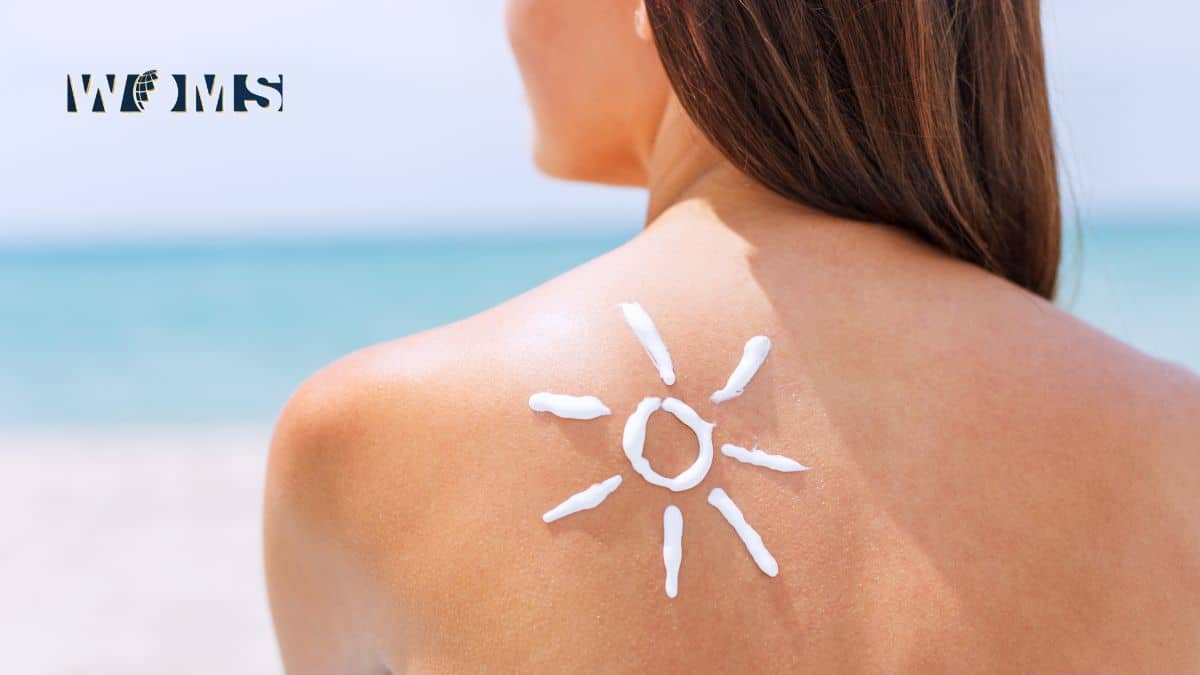How to Choose the Best Sunscreen for Your Skin Type

Whether you’re heading out to do some holiday shopping or just going about your daily routine, you should always remember to put on some sunscreen to protect your skin from the sun’s damaging UVA and UVB rays and the pollution that may be found in the air.
Sunscreens aren’t just important for outdoor use; they’re also vital for inside use, as UVA rays can pass through conventional glass windows and cause photo-aging signs like dark spots, wrinkles, and leathery skin by penetrating deeper into the skin than UVB rays.
What exactly does sunscreen protect against?
Active chemicals in sunscreen work to absorb and scatter UV rays before they may damage your skin. Exposure to ultraviolet (UV) rays, as found in the sun and tanning beds, has been linked to an increased risk of skin cancer and premature aging. It would be great if you consult the skin specialist online.
Applying sunscreen directly to the skin is possible with a variety of formulations including gels, lotions, powders, and sprays. Users of sunscreen are more likely to have:
- Protect against skin cancer: The issue of skin cancer is most prevalent in the United States. It is easy to lower this ration by applying sunscreen with an SPF of 15 or higher on a daily basis. Similarly, the complications related to melanoma, can come to a lower rate with this precaution.
- Anti-aging skin: Wrinkles, age spots, and sagging are all results of solar damage from the sun’s ultraviolet radiation. When used routinely, sunscreen helps mitigate and prevent these side effects.
Tips for picking the ideal sunscreen
Find a sunscreen that protects well while also being suitable for your skin type. Here are some important points to consider to pick the finest option.
- With a label showing SPF ratio shows how well a product blocks harmful ultraviolet radiation from the sun. In order to block off 97% of the sun’s harmful rays, dermatologists advise using a sunscreen with an SPF of 30 or below.
- You can choose your favorite type of sunscreen. These are available in a lotion, cream, or spray form. For oily skin, a sunscreen with a matte finish may be preferable, while a sunscreen with a creamy solution may be more beneficial for dry skin.
- Minerals like zinc oxide, titanium dioxide, and avobenzone are used as they effectively reflect UV radiation away from the skin. Broad-spectrum means that both UVA and UVB rays are blocked, protecting your skin from damage. However, you should stay away from retinyl palmitate, or vitamin A, because it has been linked to malignant skin growth.
What Sunscreens Work Best on Your Skin Type
Selecting a sunscreen that is suitable for your skin type is also crucial. Discover the best products for your skin type, as recommended by the experts.
Dry Skin
Try to find a sunscreen that contains moisturizing elements like hyaluronic acid, ceramides, and glycerin (a natural sugar alcohol that helps maintain moisture).
Oily Skin
Some people with oilier skin may find that chemical sunscreens, as opposed to mineral/physical sunscreens (such as those containing zinc oxide), provide more relief from the sun’s harmful rays. You can pick the one you like from the wide variety of available products which are mineral-based.
Sensitive Skin
Titanium dioxide and zinc oxide, two common active components in mineral sunscreens, tend to be gentler on the skin. Patients with rosacea, eczema or sensitivities to scents or preservatives may find them very helpful.
Skin Prone to Acne
Since thicker creams might cause clogging and flare-ups, “lighter lotions and products that are expressly non-comedogenic (not tending to clog pores)” are recommended for acne-prone skin. You can also use niacinamide to assist reduce redness in this case.
Skin with Melanin
To avoid looking like they’ve been doused in white paint, people with darker skin tones should seek out sunscreens that are tinted or rubbed in clear. Patients who have darker skin tones still need to use sunscreen because even if melanin provides some protection, it’s not enough to prevent skin cancer.
Kids’ Skin
Kids get sunburns more easily than adults, so it’s important to buy sunscreen with extra care during the summer months. Sun exposure and sunscreen should be avoided for infants under six months of age. Instead, keep a baby in the shade and dress it in loose-fitting cotton clothing (long sleeves, caps, etc.).
A Few Pointers on Applying Sunscreen
Applying sunscreen is a year-round must.
- When going swimming, it is recommended that you use around 2 tablespoons of sunscreen on your exposed skin. Apply a uniform coating of sunscreen spray all over your body if you choose to use it.
- You should put sunscreen on any exposed skin, such as your face, hands, feet, ears, neck, and scalp (if your skin is exposed).
- Apply a broad-spectrum sunscreen with a minimum SPF of 15 to all exposed skin at least 30 minutes before going outside. Keep reapplying every two hours.
- Always reapply sunscreen after swimming, sweating heavily, or drying off with a towel. Before applying again, read and follow all the reapplication instructions on the label.
Conclusion
Most sunscreens are developed from synthetic chemicals in a lab, but you can find products that contain natural oils, extracts, and other components to provide additional protection and moisture. In addition, you should talk to the bestdermatologist in Lahore about which sunscreen is best for your skin.
FAQS
1. What is the best time to use sunscreen?
Sunscreen is most effective if applied 30 minutes before going outside, giving the skin time to absorb it so that it doesn’t be washed off in the heat. When you get out of the water or sweat a lot, it’s important to reapply sunscreen.
2. What components of sunscreen work to shield the skin?
Every sunscreen has an SPF rating, which indicates how well it protects against UV radiation. Greater safety is represented by higher numbers. To protect yourself from the sun’s harmful rays, apply a broad-spectrum sunscreen with an SPF of at least 15.
3. What is the strongest type of sunscreen?
The most protective sunscreen has an SPF of 100 and is 99% effective against UVB radiation. However, SPF 100 sunscreen isn’t universally recommended by specialists. When compared to SPF 30 and 50 (which block 98% of UVB rays), this is only a small improvement.




